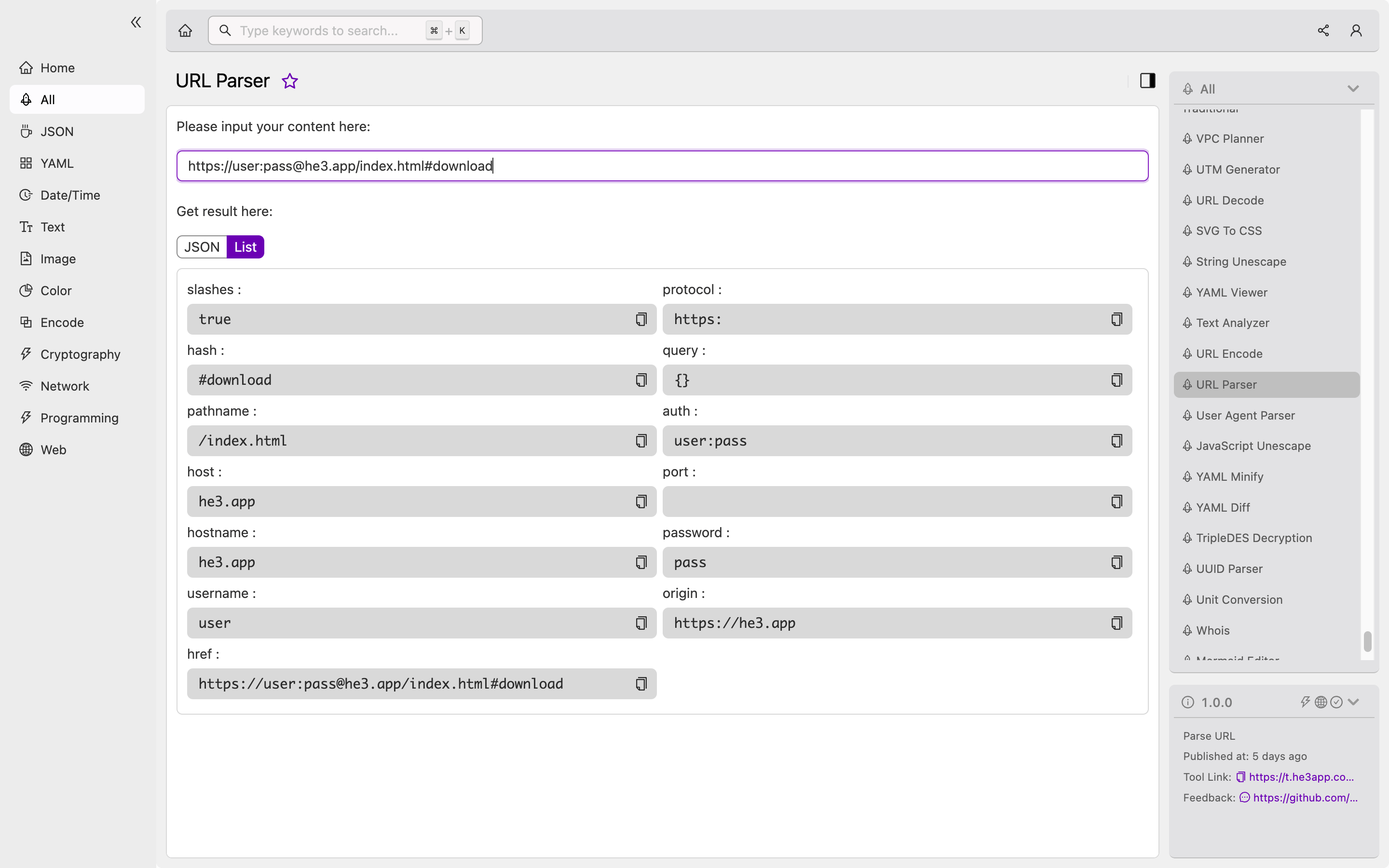Introduction
As a developer, you must have come across URLs and query strings in your web development projects. URL Parser is a tool that parses URLs into their constituent parts, making it easier for developers to work with them. This article explains what URL Parser is, how it works, and its key features.
What is URL Parser?
URL Parser is a tool that extracts the different parts of a URL, such as the scheme, host, port, path, query string, and fragment identifier. Parsing URLs is useful when building applications that scrape data from websites, build web crawlers, or analyze web traffic. URL Parser can parse both absolute and relative URLs.
How Does URL Parser Work?
The process of parsing a URL involves breaking it down into its component parts. The URL is first split into the scheme, the host, and the path. The query string and the fragment identifier are then extracted. Finally, the individual parameters in the query string are extracted.
One way to parse URLs in Python is to use the urllib.parse library. The urlparse() function from this library breaks down the URL into its different parts. Here’s a sample code:
from urllib.parse import urlparse
url = "https://www.example.com/path/to/page/?param1=value1¶m2=value2#section1"
parsed = urlparse(url)
print(parsed.scheme)
# Output: https
print(parsed.netloc)
# Output: www.example.com
print(parsed.path)
# Output: /path/to/page/
print(parsed.query)
# Output: param1=value1¶m2=value2
print(parsed.fragment)
# Output: section1Or you can use URL Parser tool in He3 Toolbox (https://t.he3app.com?7yy6) easily.

Scenarios
URL Parser can be used in different scenarios, such as:
- Building a web crawler
- Developing a URL shortener
- Analyzing web traffic
- Scraping data from websites
- Generating sitemaps
Key Features
URL Parser has the following key features:
- Parses both absolute and relative URLs
- Extracts the different parts of a URL, such as the scheme, host, port, path, query string, and fragment identifier
- Extracts individual parameters in the query string
- Supports different programming languages, such as Python, JavaScript, and PHP
Misconceptions
There are a few misconceptions about URL Parser:
- URL Parser can only parse URLs with http or https schemes. This is not true as URL Parser can parse different types of schemes, such as ftp and file.
- URL Parser can only extract query string parameters with alphanumeric characters. This is not true as URL Parser can extract query string parameters with special characters as well.
FAQs
Q: Can URL Parser convert a relative URL to an absolute URL? A: No, URL Parser only parses URLs into their constituent parts. Converting a relative URL to an absolute URL requires additional functions.
Q: Can URL Parser extract the anchor tag from a URL? A: Yes, URL Parser can extract the fragment identifier, which includes the anchor tag.
Q: Can URL Parser extract the user credentials from a URL? A: Yes, URL Parser can extract the user credentials if present in the URL.
Conclusion
URL Parser is a useful tool for developers working with URLs and query strings. This article has explained what URL Parser is, how it works, and its key features. We’ve also provided scenarios, misconceptions, and FAQs to help you get started with parsing URLs and query strings in Python.
